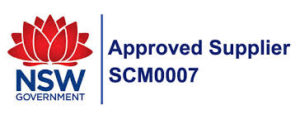[vc_row][vc_column][vc_column_text] Injured or ill workers should be empowered to play an active role in their own recovery and return to work through both practical and psychological support, according to two new research reports by Griffith University.
Injured or ill workers should be empowered to play an active role in their own recovery and return to work through both practical and psychological support, according to two new research reports by Griffith University.
The reports encourage employers to provide their injured workers with greater access to workplace arrangements like flexible schedules, task modifications, graded returns or role changes.
Safe Work Australia has published two research reports by Griffith University under the National Return to Work Strategy 2020-2030:
- Psychological response to injury: Research to support workers’ psychological responses to injury and successful return to work, and
- Stigma towards injured or ill workers: Research on the causes and impact of workplace stigma in the workplace, and approaches to creating positive workplace cultures that support return to work
SWA say the reports provide an evidence base and recommendations on how to meaningfully support workers in their recovery and return to work through building positive workplace cultures and minimising the adverse impacts of stigma and other psychological responses to injury on workers.
The 2018 National Return to Work Survey results showed that:
- of the workers who had returned to work, 36.1% of workers returned to modified hours,
- 32.2% of workers surveyed thought that people at work (including their peers) would treat them differently if they made a workers’ compensation claim, and
- workers who were not concerned about claiming are 3.1 times more likely to return to work.
For more information or to download the report, visit the Safe Work Australia website.
Source: Safe Work Australia, September 2021[/vc_column_text][/vc_column][/vc_row]

 Safety Australia Group
Safety Australia Group